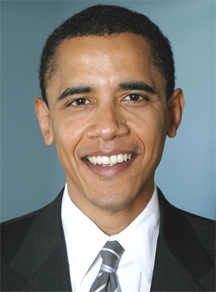WASHINGTON, (Reuters) – The Obama administration, under fire for not taking a harder line on China over its currency, appears set to move against the Asia export powerhouse on other fronts as next year’s U.S. elections approach.

The United States is likely to launch fresh challenges against China at the World Trade Organization, probably stoking tensions between the world’s two biggest economies.
“I expect the United States will be bringing more cases against China in the coming year,” said James Bacchus, who as a former WTO appellate judge used to sit in judgment of international trade disputes.
Already firmly in campaign mode, President Barack Obama recently boasted of taking a tougher line on trade than his predecessors. China, its currency and other trade issues have already become a big issue in the election campaigning.
Republican presidential hopeful Mitt Romney has ratcheted up his criticism of China, despite his party’s traditionally pro-free trade stance.
“If you are not willing to stand up to China, you will get run over by China, and that’s what’s happened for 20 years,” the former Massachusetts governor said on Tuesday.
He was speaking shortly after the U.S. Senate passed legislation to crack down on Chinese currency practices that U.S. lawmakers blame for millions of lost jobs.
Sensitive to how the criticism of China plays with U.S. voters, Obama has not yet explicitly said he would veto the bill. In any case, the legislation is unlikely to pass the House of Representatives where Republican leaders have voiced concern that it might breach WTO rules and could spark a trade war which would damage U.S. corporations.
But Obama is likely to want to show voters his mettle on trade issues and trade experts say he has plenty of options to pursue which, unlike the Senate currency bill, are likely to conform with WTO rules.
New government data on Thursday that showed the U.S. trade deficit with China hit a record $29 billion in August and is also likely to set a record for the year could add to the pressure on Obama to act.
Last week, U.S. trade officials notified the WTO of some 200 Chinese government subsidy programs and scolded Beijing for not taking the action itself as required under WTO rules.
U.S. officials at the WTO’s headquarters in Geneva also recently took China to task over agricultural policies that they said unfairly discriminated against foreign suppliers.
One case likely to surface in coming months is a complaint against Chinese export restrictions on rare earth minerals used in variety of high tech and clean energy goods, Bacchus said.
Jeffrey Schott, a senior fellow at the Peterson Institute for International Economics, said he also believed U.S. Trade Representative Ron Kirk’s office was laying the groundwork for a number of new trade cases against China.
“I think USTR is moving aggressively to ensure strong enforcement of U.S. trade rights and I think that is a high priority in the White House,” Schott said.
Both Obama and U.S. Treasury Secretary Timothy Geithner have recently sharpened their criticism of Beijing’s failure to protect U.S. intellectual property, an area that the United States has successfully challenged in the past at the WTO and could be ripe for additional complaint, Bacchus said.
In another warning sign for China, U.S. lawmakers have been pressing for action against Chinese government subsidies for its solar industry and other “green” technologies, an area prominently included in the USTR report to the WTO last week.
The United States may need to tread carefully in that area since it has its own programs to support renewable power.
TENSE ATMOSPHERE
Analysts cautioned the highly charged political atmosphere in Washington — as Republicans and Democrats struggle for position ahead of presidential and congressional elections in 2012 — could be misread by Beijing.
China faces a leadership succession of its own in 2012-13, adding to the potential for tensions between the two countries to worsen.
“We’ve been seeing for some time in (the United States) a serious flirtation with increased protectionism,” said Doug Paal, a China expert and vice president for studies at the Carnegie Endowment for International Peace.
“I have been telling the Chinese that they should take this seriously, but I’ve been warning them that next year is the one that they’re really going to have to worry about.”
Eswar Prasad, a senior fellow at the Washington-based Brookings Institution, said any tit-for-tat measures had the potential to blow up into something much more serious.
“There is a real and present danger that symbolic measures initiated by either side spiral into a more serious trade conflict as both sides strive to flex their muscles for the benefit of domestic audiences,” Prasad said. “Much acrimony lies ahead but the big question is whether it will spill over into open warfare that could be mutually harmful.”





